OnePlus 7 Pro vs. Galaxy Note 9: Which should you buy?
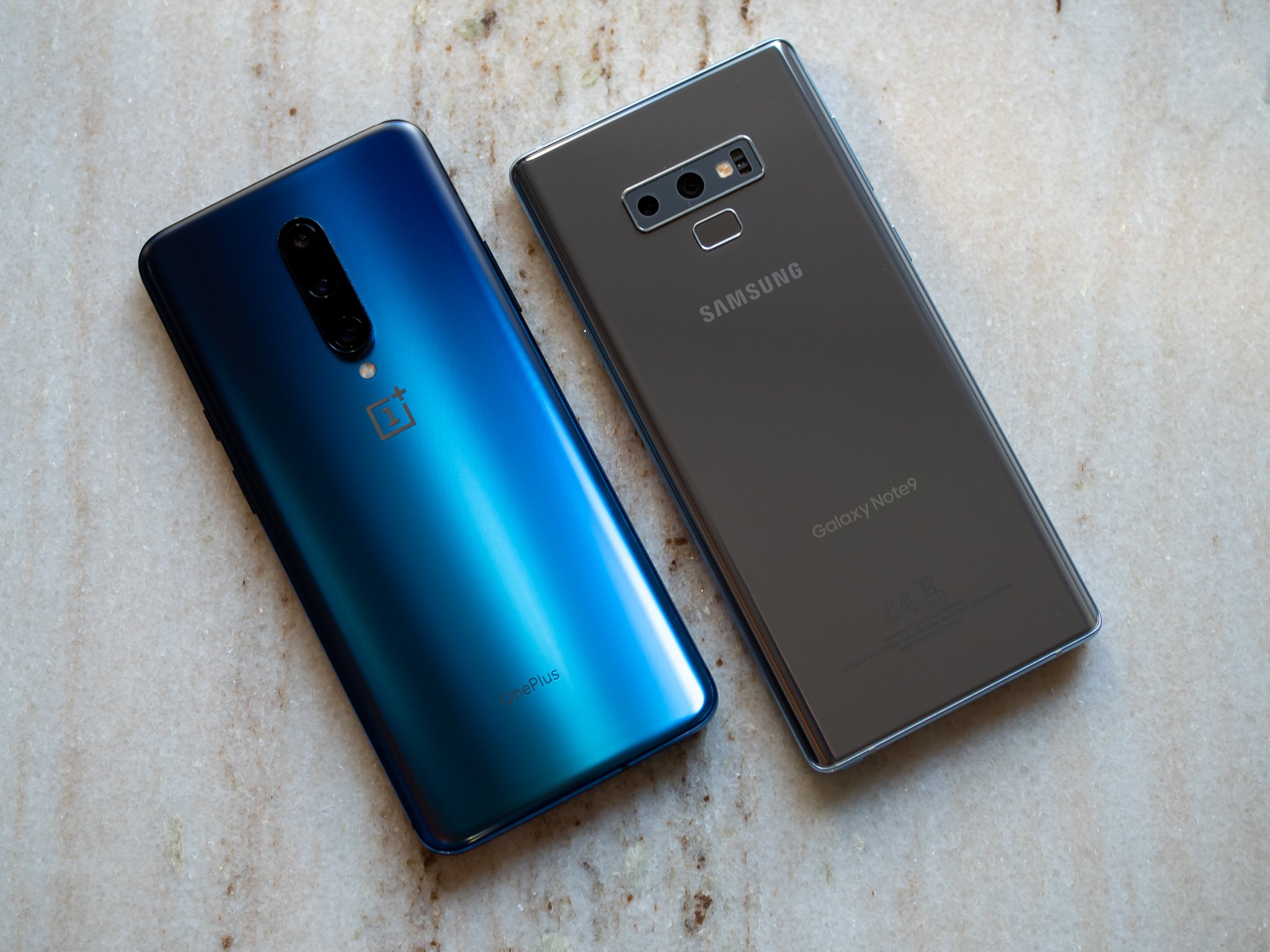
OnePlus 7 Pro
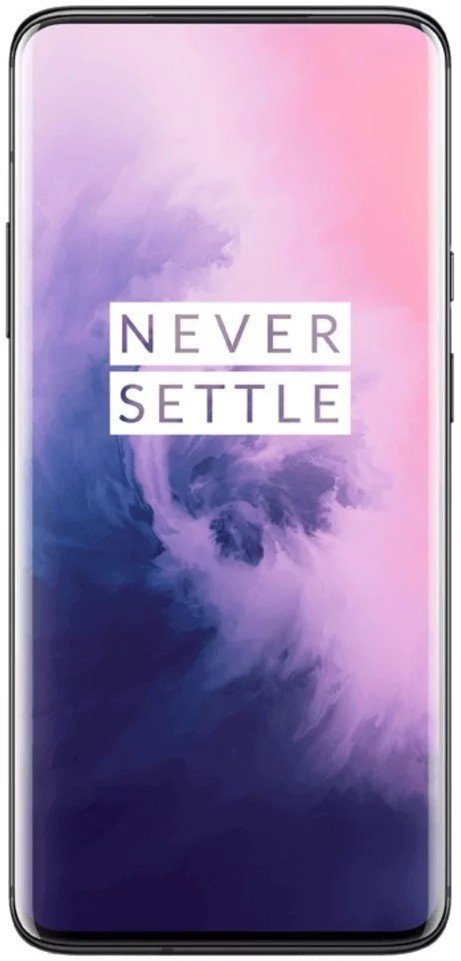
The OnePlus 7 Pro competes with today's high-end phones, and does so at a lower price. It feels every bit a flagship phone in hardware, display, specs, and performance. The speed and simplicity of its software is truly something to behold, and it's filled with great little features. Comparing to a Samsung phone, though, you may miss things like wireless charging, a headphone jack, a water resistance rating, and better camera quality.
OnePlus 7 Pro
Top performer
Samsung Galaxy Note 9
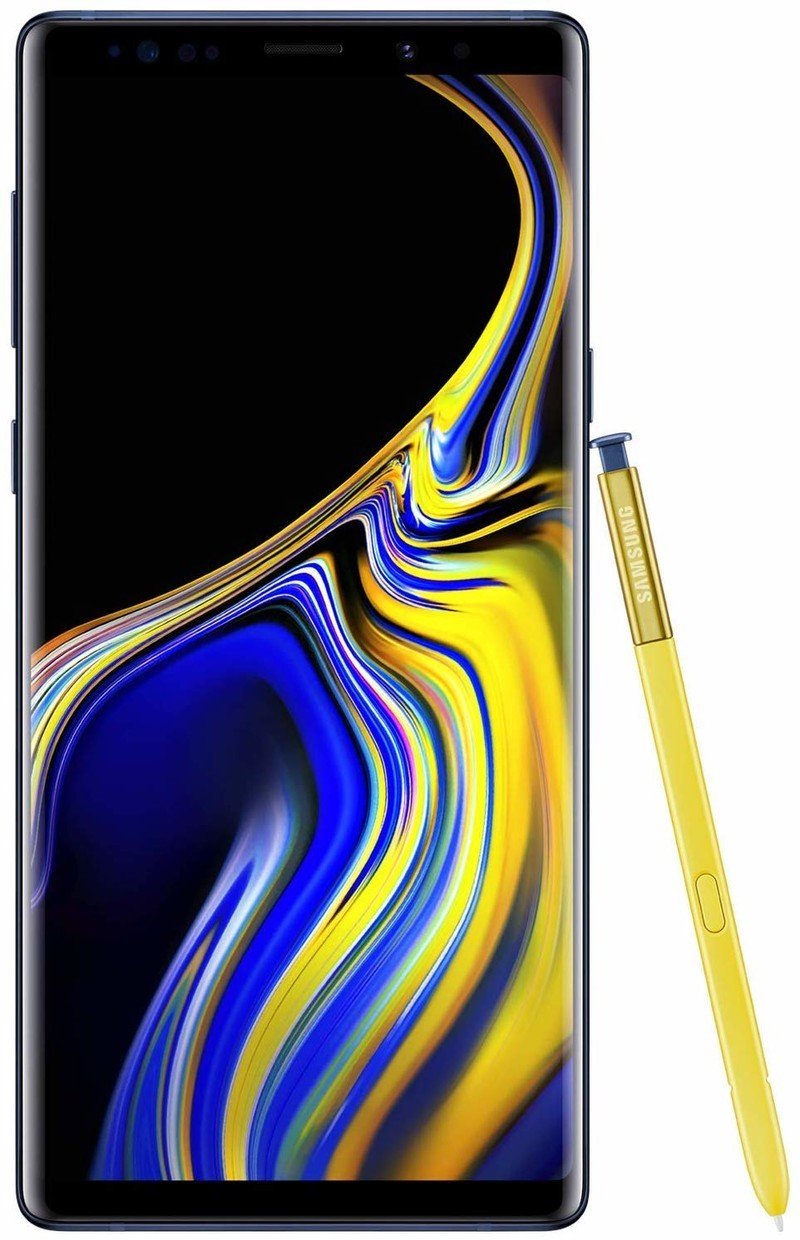
At the end of 2018, the Note 9 was a $1000 flagship — now, it's the same price as the entry-level OnePlus 7 Pro. The Note 9 has aged extremely well and offers much of what everyone is still lusting after in the newer Galaxy S10+. It has a great screen, all of the hardware features you desire, a full spec sheet, and solid cameras. Whether it's for you really depends on how much you can deal with its software compared to OxygenOS.
Samsung Galaxy Note 9
Fantastic value
What's the difference between the OnePlus 7 Pro and Galaxy Note 9?
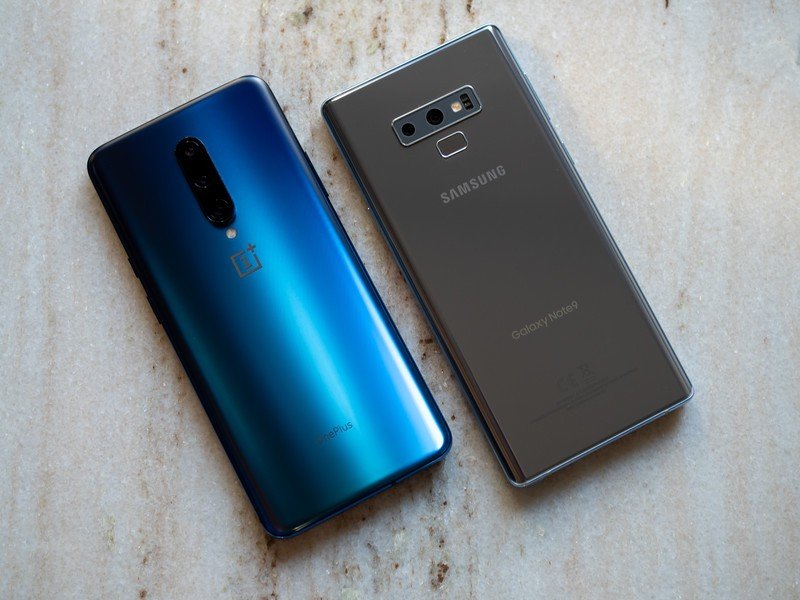
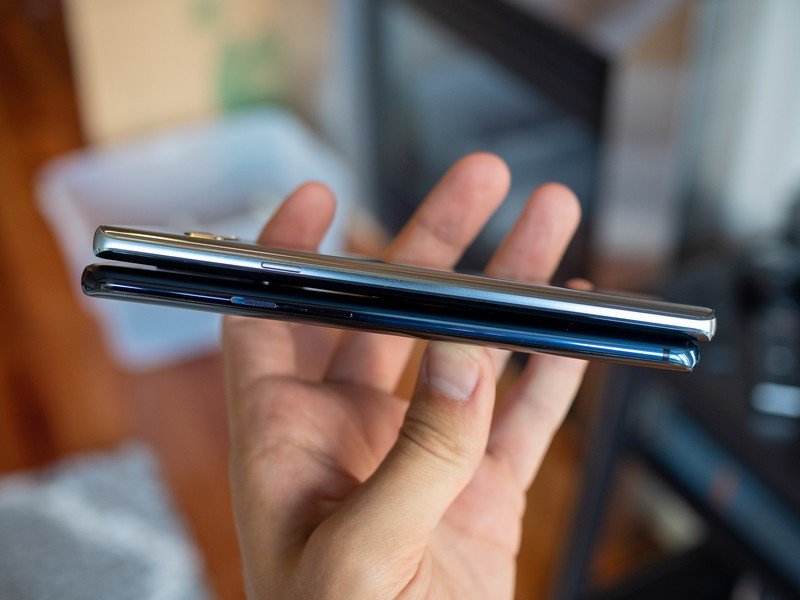
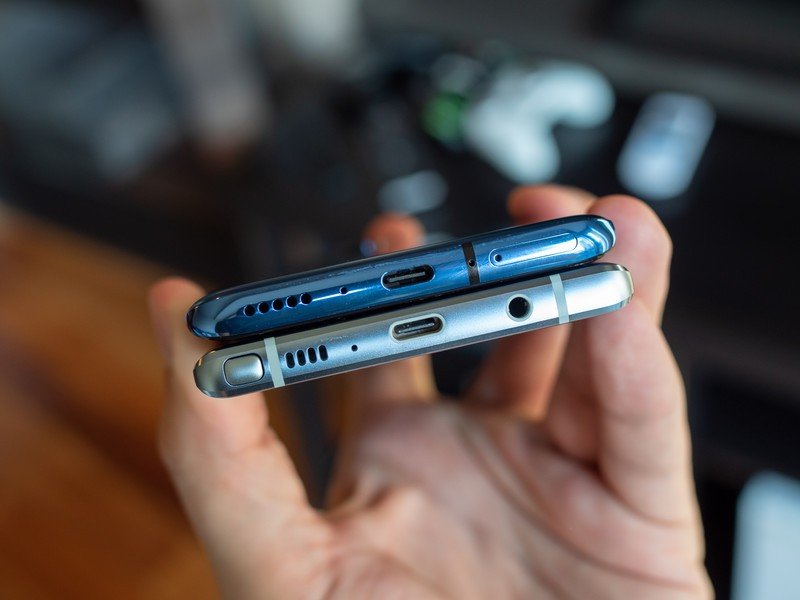
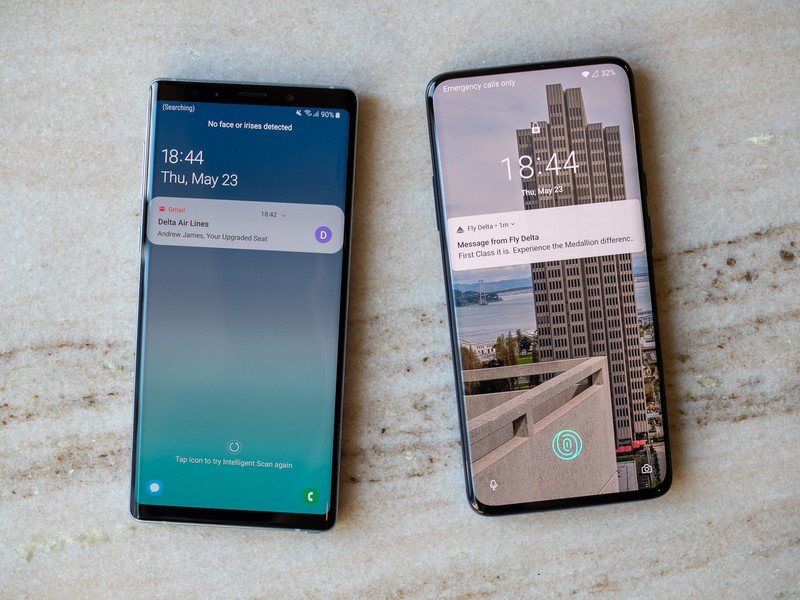
It's incredible how similar the OnePlus 7 Pro is to Samsung's top-end phone from late 2018. The similarities start off with the hardware, where you can draw lines directly from the Note 9 to the newer 7 Pro. They're nearly identical in size, shape and weight, and the double-curved-glass and metal frames look and feel incredibly similar.
It's incredible how similar the OnePlus 7 Pro is to Samsung's top-end phone from late 2018.
Both are dominated by a huge display, though the 7 Pro's is just a little bigger at 6.67 inches to the Note 9's 6.4 — you likely won't notice the difference, though. Both screens look wonderful, but if you're going to hand out plaudits the 7 Pro's 90Hz refresh rate makes scrolling exceptionally smooth; at the same time, the Note 9's outdoor visibility and brightness are just a small step up.
Similarities continue inside, with packed spec sheets in both phones. Yes, the OnePlus 7 Pro has a newer Snapdragon 855 processor, and you can option up more RAM, but in day-to-day use you won't notice a difference from the Note 9. You get the same base storage in both with options for more for a similar price — the Note 9 simply has the benefit of microSD expansion.
The phones have identical 4000mAh batteries, which generally translate to about the same battery life. The Note 9 is exceptionally consistent in terms of battery life, whereas the OnePlus 7 Pro can drain a bit faster when you're heavily using the display — in either case, you'll be getting a full day of use without hitting a wall charger. When you do need to charge, the OnePlus 7 Pro is faster with its Warp Charge 30 plug, but the Note 9 has more options with wireless charging and fast charging from the leading Quick Charge and USB-C PD standards.
| Header Cell - Column 0 | OnePlus 7 Pro | Samsung Galaxy Note 9 |
|---|---|---|
| Operating System | Android 9 PieOxygenOS | Android 9 PieOne UI 1.1 |
| Display | 6.67-inch Fluid OLED3120x1440 (19.5:9) | 6.4-inch Super AMOLED2960x1440 (18.5:9) |
| Processor | Qualcomm Snapdragon 855 | Qualcomm Snapdragon 845 |
| RAM | 6/8/12GB | 6/8GB |
| Storage | 128/256GB | 128/256/512GBmicroSD expansion |
| Rear camera 1 | 48MP, f/1.61.6 μm pixelsOIS, EIS | 12MP, f/1.5 or f/2.41.4 μm pixelsOIS, EIS |
| Rear camera 2 | 8MP, f/2.41.0 μm pixelsOIS, 3X telephoto lens | 12MP, f/2.41.0 μm pixelsOIS, 2X telephoto lens |
| Rear camera 3 | 16MP, f/2.2117-degree lens | n/a |
| Front camera | 16MP, f/2.0Fixed focus | 8MP, f/1.7Auto focus |
| Security | Optical in-screen fingerprint sensor | Capacitive fingerprint sensor |
| Audio | USB-CStereo speakers | 3.5mm headphoneStereo speakers |
| Battery | 4000mAh | 4000mAh |
| Charging | Warp Charge 30W fast charging | Quick Charge 2.015W USB-C PDFast Charge wireless |
| Water resistance | No | IP68 |
| Dimensions | 162.6 x 75.9 x 8.8 mm206 g | 161.9 x 76.4 x 8.8 mm201g |
| Colors | Mirror Gray, Nebula Blue, Almond | Ocean Blue, Lavender Purple, Midnight Black, Metallic Copper |
OnePlus makes its software a top priority, and it ends up being one of the 7 Pro's best features.
The OnePlus 7 Pro's big differentiator is something you can't find on a spec sheet: its OxygenOS software experience. OnePlus makes its software a top priority, and it shows. What you get here is a clean, smooth, fast and useful interface throughout, with no roadblocks or cruft getting in your way. It does exactly what you expect, doesn't throw curveballs, and never slows down. It also manages to have a good amount of customization options at the same time.
Be an expert in 5 minutes
Get the latest news from Android Central, your trusted companion in the world of Android
With that simpler software also comes faster updates. OnePlus has consistently shown that it can get both big platform updates and small security patches out to phones faster than Samsung — and for longer.
The Note 9 has little hardware extras, and a better camera, that boost its value.
Even though the hardware design and feel are incredibly similar between these phones, there are a few areas where the Note pulls ahead. It has a proper IP68 water resistance rating, which will give you confidence that it can survive the elements in a way that the OnePlus 7 Pro won't. It also has that rating despite having a headphone jack, which is a great feature everyone can make use of. And we can't skip over the Note's S Pen stylus, which is at least a nice-to-have feature for signing documents and perhaps a game-changing feature if you really take to its capabilities.
The other area the Note 9 has an advantage is camera quality. It may not have the wide-angle camera of the OnePlus 7 Pro (or Galaxy S10+ for that matter), but its main camera is better in overall quality in any given situation. Samsung's image processing is just a step beyond OnePlus, and it's noticeable when you set them side by side. The Note 9's front-facing camera is also a small jump up, with autofocus making a big difference in selfies.
Should you buy the OnePlus 7 Pro or Galaxy Note 9?
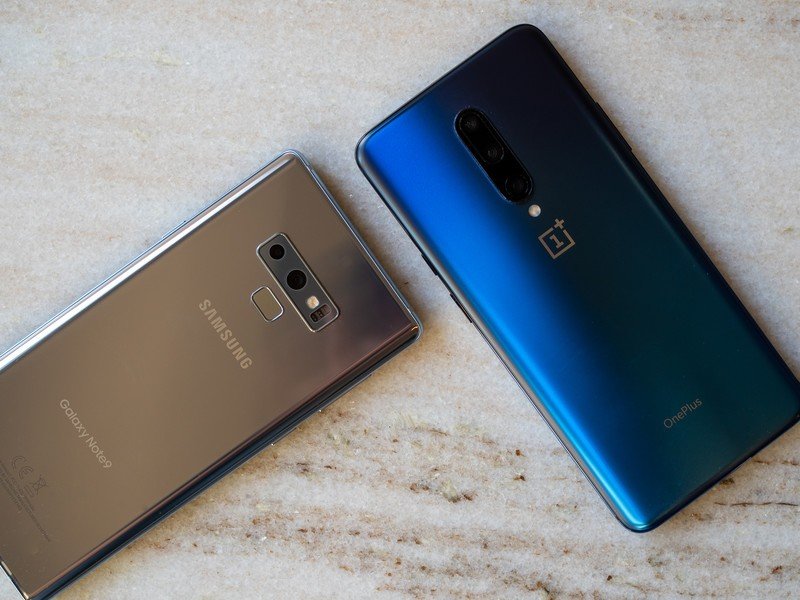
With so much shared between these two phones, deciding between the OnePlus 7 Pro and Galaxy Note 9 really comes down to just a couple questions.
The 7 Pro's software puts it ahead, but the Note 9 has hardware features to compensate.
The big difference is in software, where the OnePlus 7 Pro is definitely in the lead. It's simpler to pick up and use, and isn't nearly as burdensome to get configured and set up to use how you want it to. Samsung does a fine job with its software, but it's no match for the simplicity, speed, consistency and usefulness of OxygenOS. Unless you have a long track record of using Samsung phones, or are willing to really get in and tweak things, you'll prefer the 7 Pro's software.
The Note 9's wins all come in the hardware department. Its little extras like water resistance, wireless charging, a headphone jack and an S Pen just enhance the experience, and could add up to be enough of a differentiator to make you pick the Note. If not, the superior camera quality, both front and back, could sway you instead. It's these features that remind you what the Note 9 cost when it was first announced.
No matter which phone you choose, you're getting incredible hardware, a great screen, top-end specs, solid battery life and a ton of features. Just choose which software experience you'd prefer, and whether the little extra hardware features the Galaxy Note 9 has made a difference to you, and you'll be ready to pick the right one to fit your needs.

A great phone at any price that competes well on all fronts.
The OnePlus 7 Pro competes with top-end phones, and does it at a lower price. It feels every bit a flagship in hardware, display, specs and performance. Its software speed and consistency are truly great, and it's filled with awesome little features. Comparing to a Samsung phone, though, you may miss extras like wireless charging, a headphone jack, a water resistance rating and better camera quality.

An amazing value for a phone that still feels fresh and modern.
At the end of 2018, the Note 9 was $1000 — now, it's the same price as the entry-level OnePlus 7 Pro. It has aged extremely well, and offers much of what everyone is still lusting after in the newer Galaxy S10+. It has a great screen, all of the hardware features you desire, a full spec sheet and good cameras. Whether it's for you really depends on how much you can deal with its software compared to OxygenOS.
Andrew was an Executive Editor, U.S. at Android Central between 2012 and 2020.

